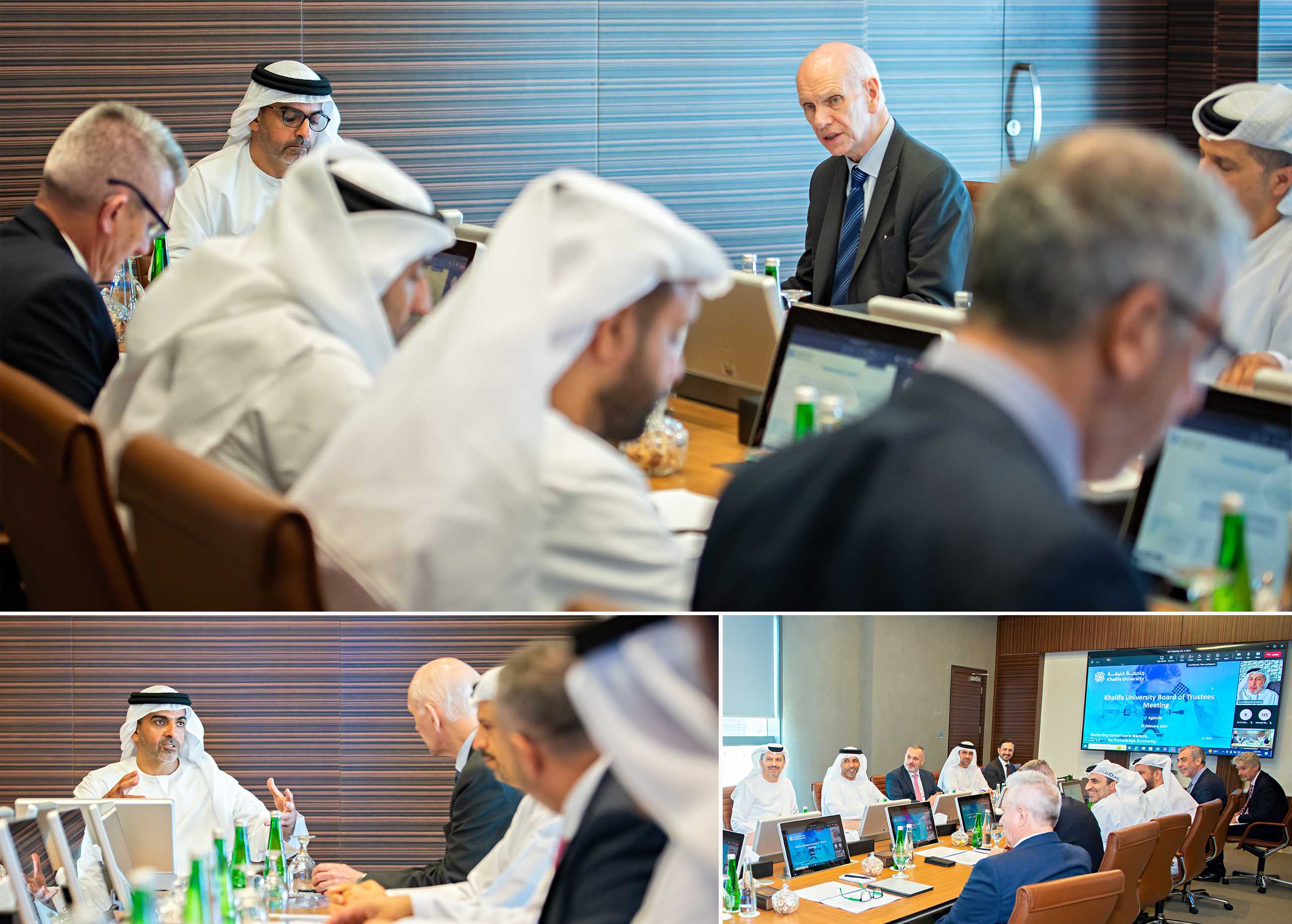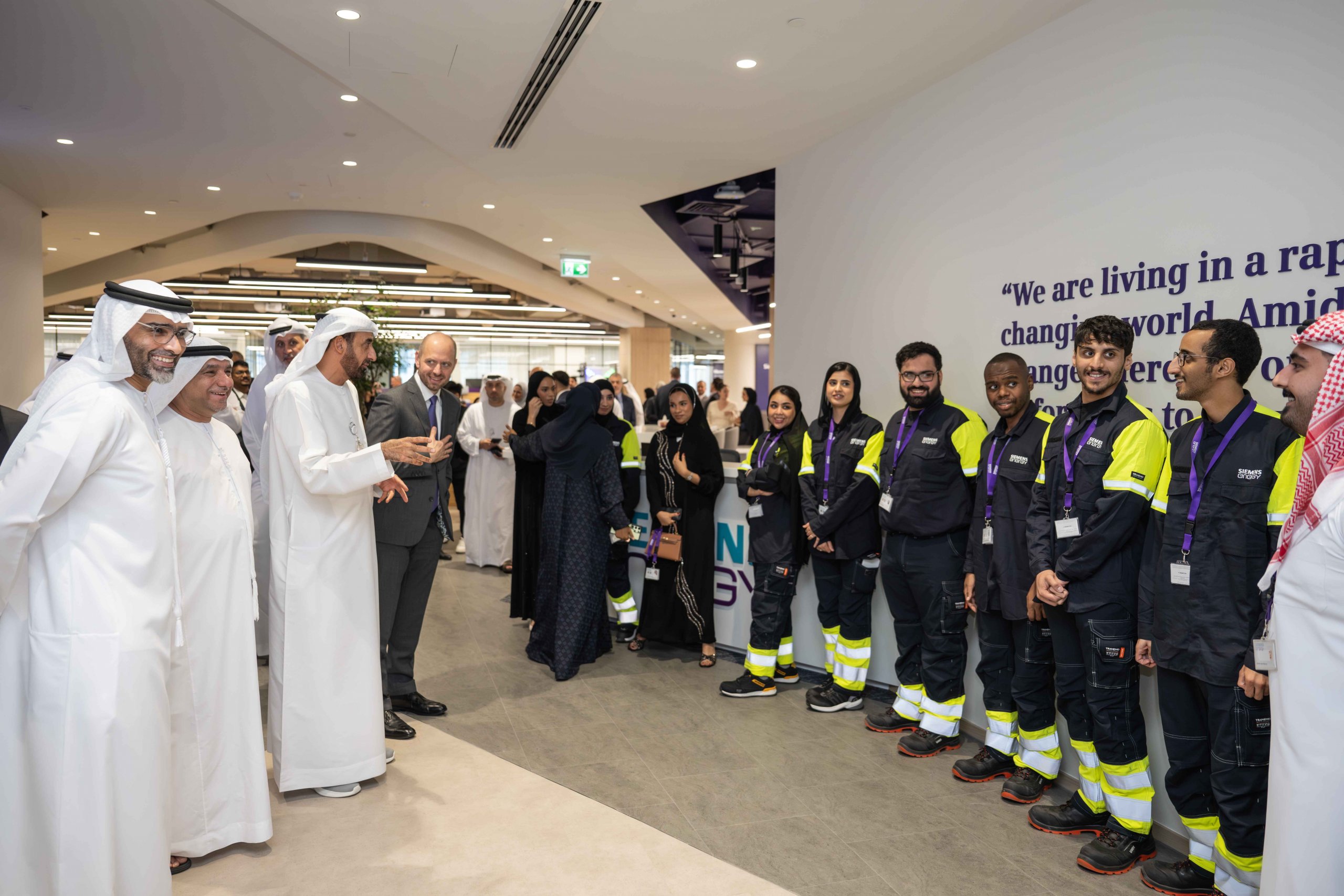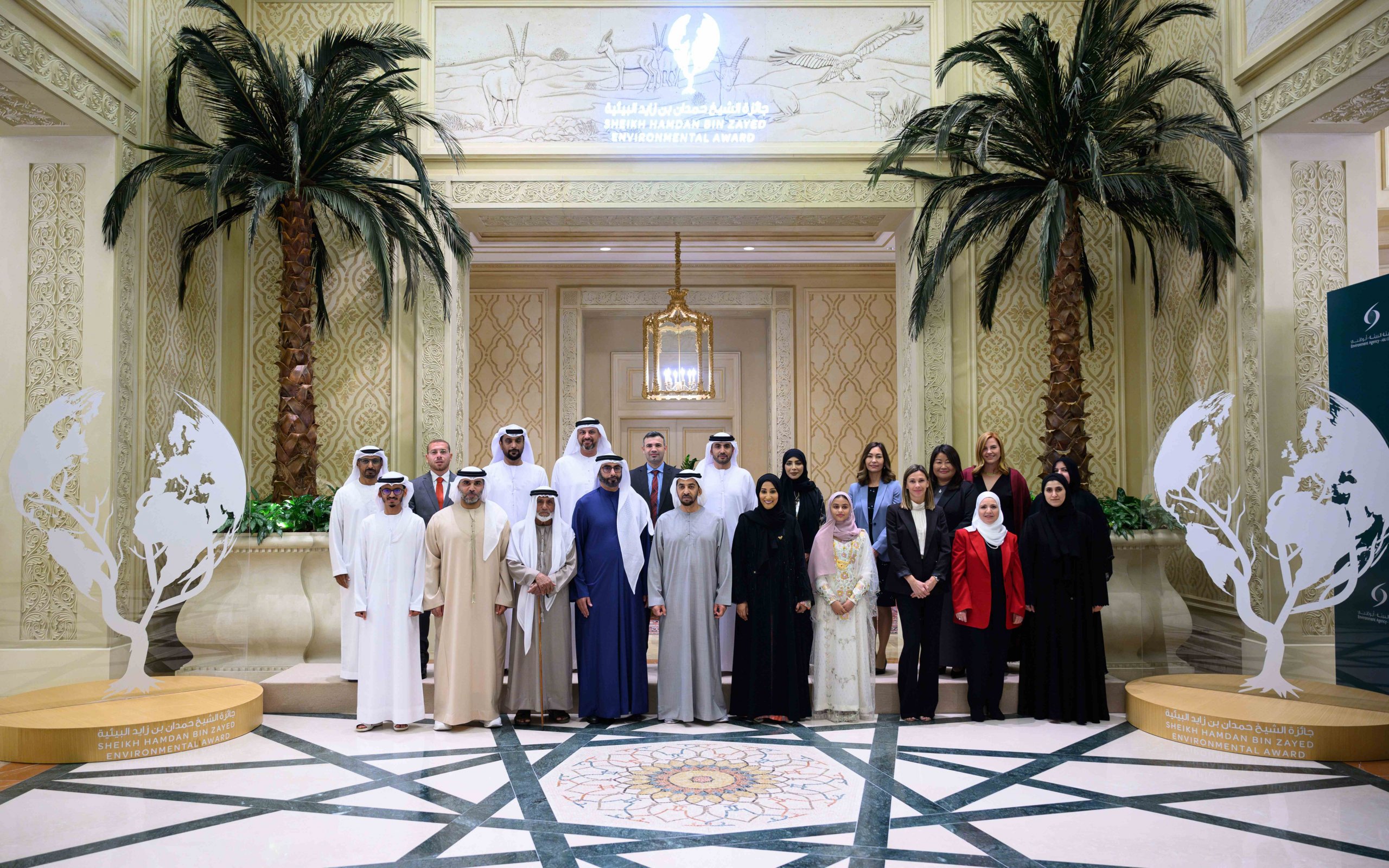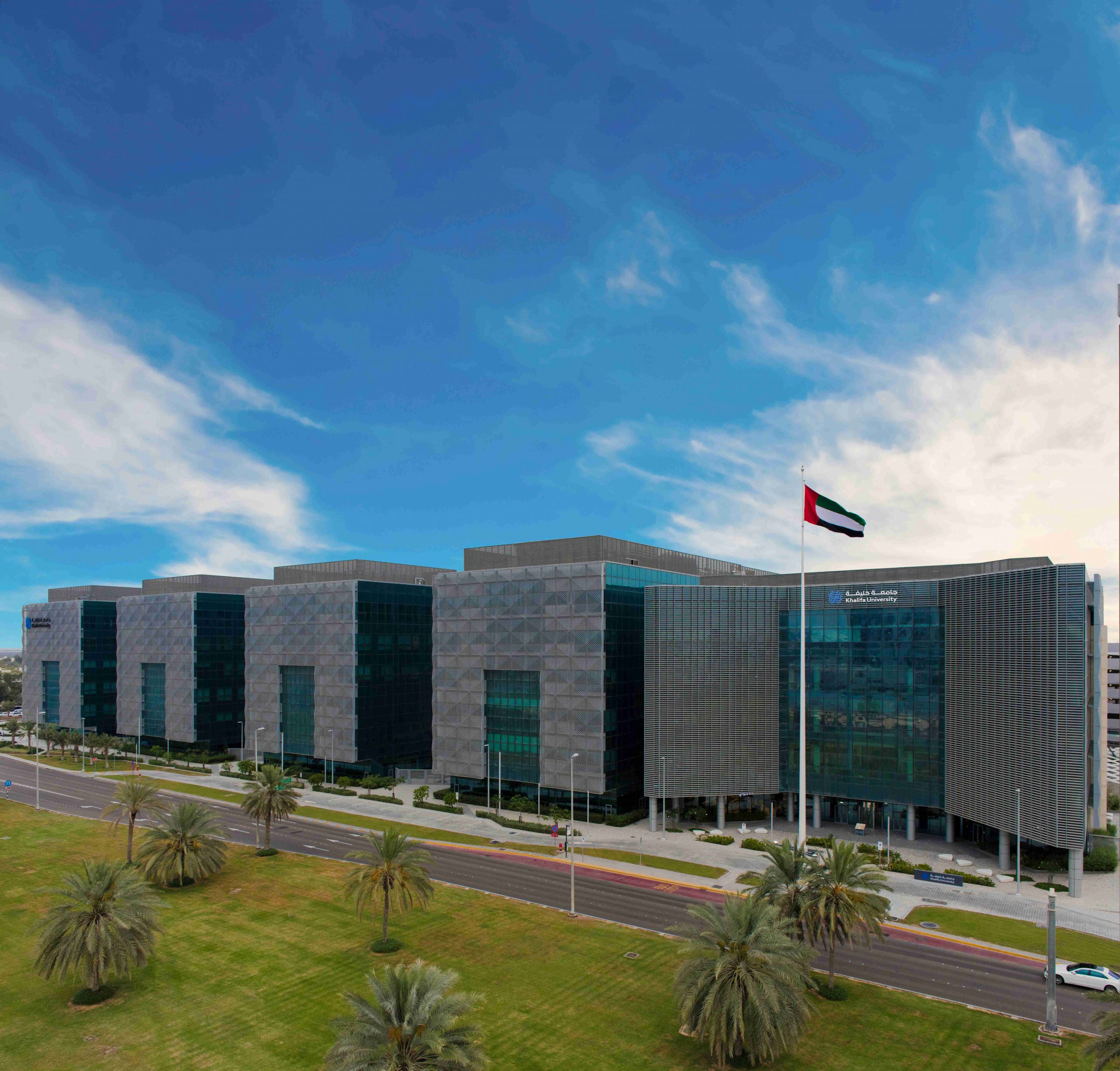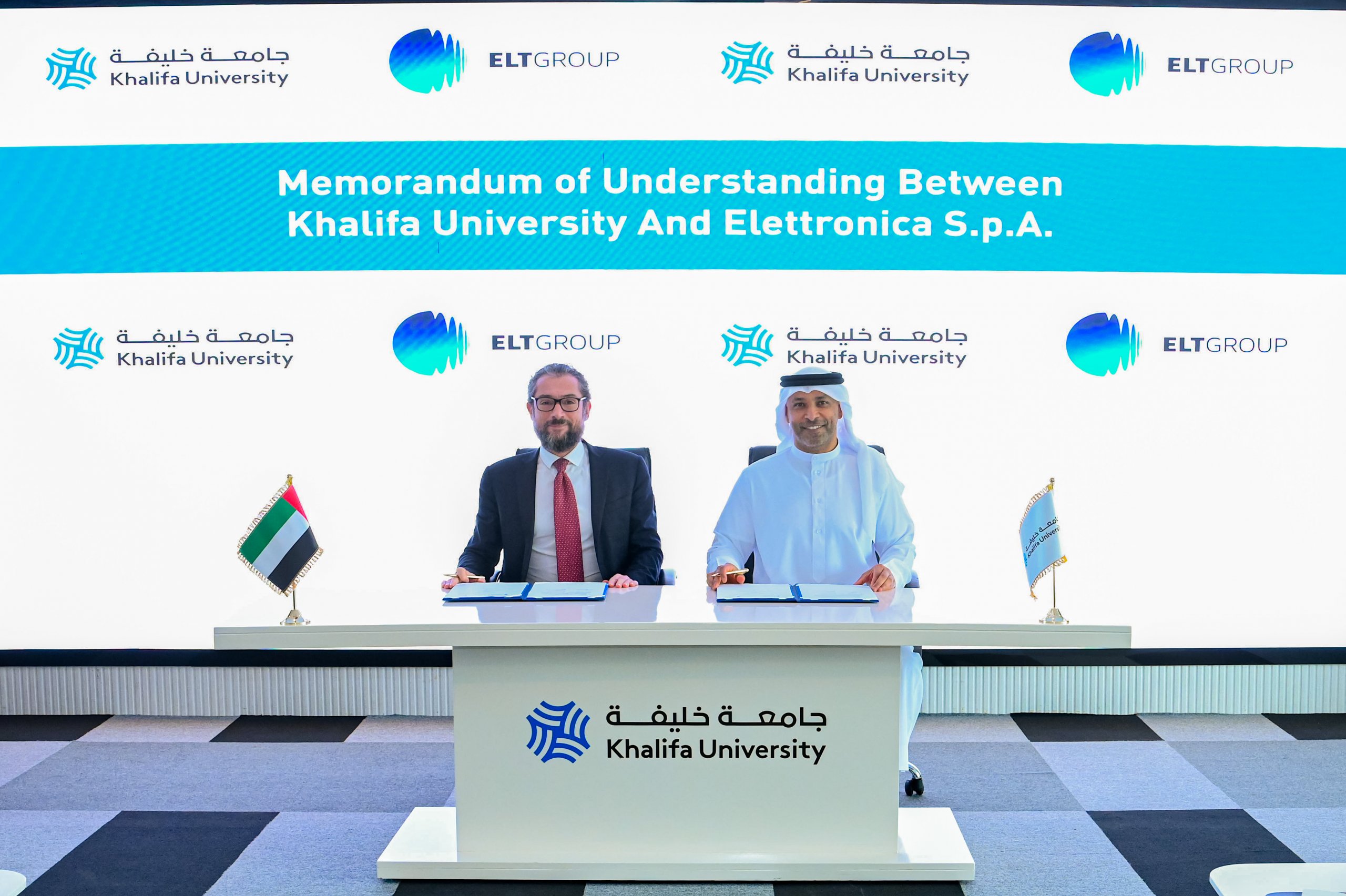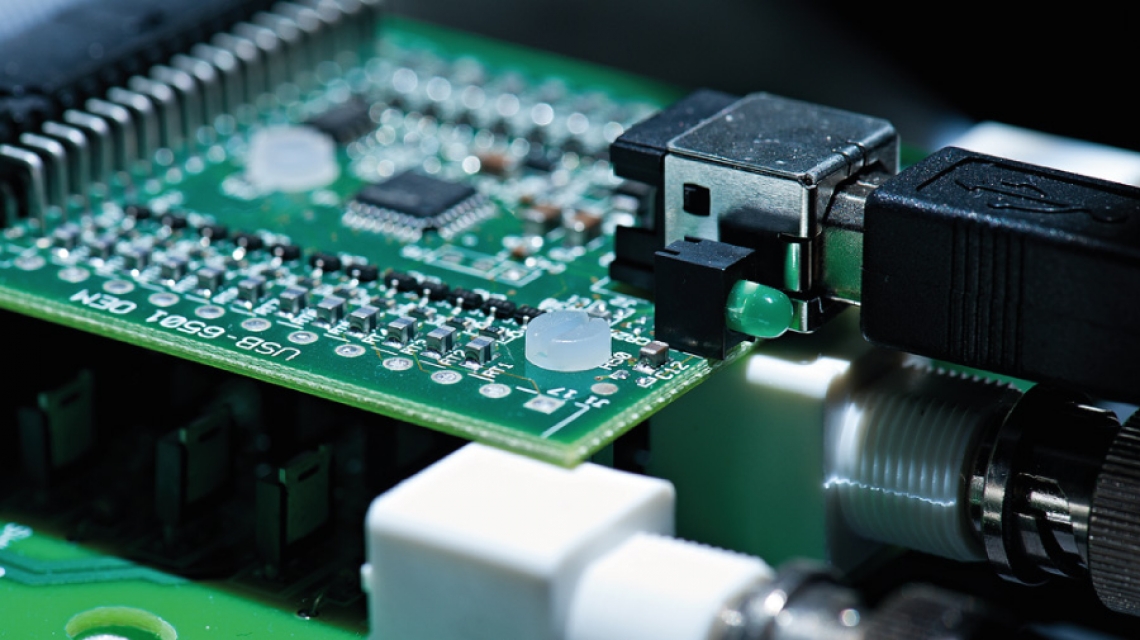
Research by Masdar Institute faculty and graduate students towards creating electronic-photonic integrated circuits (EPICs) was presented at the Integrated Photonics Research, Silicon and Nano Photonics (IPR) conference – the premier and longest-running international meeting dedicated to groundbreaking advances in research and development of integrated photonic and nano-photonic technologies.
The research papers were prepared by Electrical Engineering and Computer Science Assistant Professors Dr. Marcus Dahlem and Dr. Anatoly Khilo, and four graduate students from Masdar Institute’s Microsystems Engineering program – Kenaish Al Qubaisi, Hayk Gevorgyan, Soha Yousuf and Mahmoud Shahin. The conference was organized by the Optical Society of America (OSA) and held in Boston, Massachusetts. Its aim was to bring together experts from both academia and industry for open discussions on cutting-edge research, technology trends and new challenges with photonic integrated circuits and related devices.
Dr. Dahlem said, “This is a leading conference on silicon photonics, and it was an excellent opportunity for our graduate students to present their research to a broad international audience of experts. Attendees included researchers from top institutions such as the Massachusetts Institute of Technology, Harvard, Stanford, Yale, ETH Zurich, Ghent, and more, including government agencies. The research presented at the conference is partially funded by GlobalFoundries and is in line with Abu Dhabi’s investments in the semiconductor industry.”
Dr. Dahlem and the students presented papers related to their innovative photonics and optical micro-electromechanical systems (MEMS) research. Three papers, titled “Phase Response Reconstruction in Ring Resonator Filters,” “Time-Wavelength Pulse Interleaver on a Silicon Platform,” and “TM-Polarizer using Segmented Silicon Waveguide,” highlight their efforts to create EPIC devices, which expand existing integrated circuits by adding optical components to them.
Integrated circuits are the principal component in all electronic devices, including laptops, mobiles and TVs. A collection of electrical components printed on wafers of semiconductor materials such as silicon, integrated circuits use electrons to transport data. Since their advent in the mid-twentieth century, integrated circuits have been getting increasingly smaller and more efficient with each passing year. But integrated circuits are reaching their peak in terms of speed, energy consumption and processing power, leading scientists to turn to photonics – or light – to help them create the next-generation of semiconductor products.
Photonic integrated circuits use both light and electrons to build integrated systems that are smaller and more efficient than their electrical-based counterparts. By adding photonic components, Dr. Dahlem and his team at Masdar Institute are creating powerful integrated circuits, capable of managing and transmitting more data, faster.
Such innovative photonic integrated circuits have novel applications in high-tech industries such as aerospace, computer science, robotics, quality control systems, bioengineering, and medical devices.
The fourth paper presented at the conference, titled “Suspended Microring Resonator Sensor Using Internal Sub-Wavelength Grating,” explains the team’s research on the development of advanced sensors based on optical MEMS. Like photonic integrated circuits, optical MEMS involve computer circuits that process light. Optical MEMS can be used for high-speed, high-resolution sensing and they are very small, in the range of 100 nanometers to 1 millimeter. Dr. Khilo and Dr. Dahlem, along with Dr. Clara Dimas and other researchers at Masdar Institute, are working to decrease the cost and size of the optical MEMS sensors while increasing their sensitivities and processing capabilities.
Dr. Dahlem and Dr. Khilo belong to the Institute’s Center for Microsystems (iMicro), which has a research portfolio that includes development of integrated photonic circuits, fiber optics sensors, silicon photonics, and MEMS – all at the micro- and nanometer scales.
Their research leverages complementary know-how from Masdar Institute and the Institute of Microelectronics (IME), with overall guidance from GlobalFoundries, a wholly owned Mubadala business, to push the cutting-edge development of MEMS and enhance Abu Dhabi’s leadership in this burgeoning industry.
Erica Solomon
21 July, 2015


